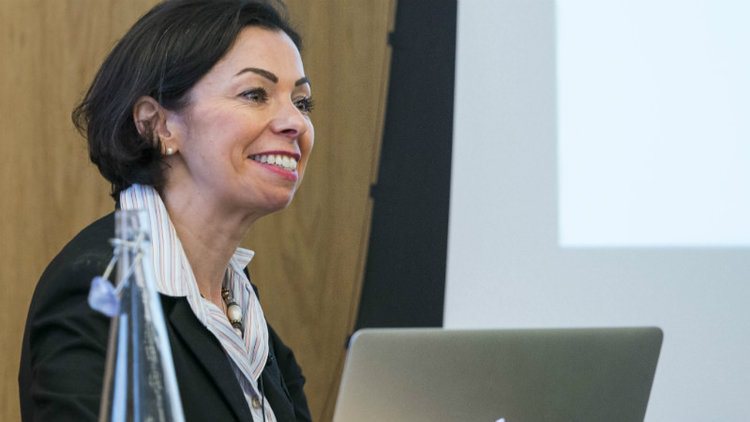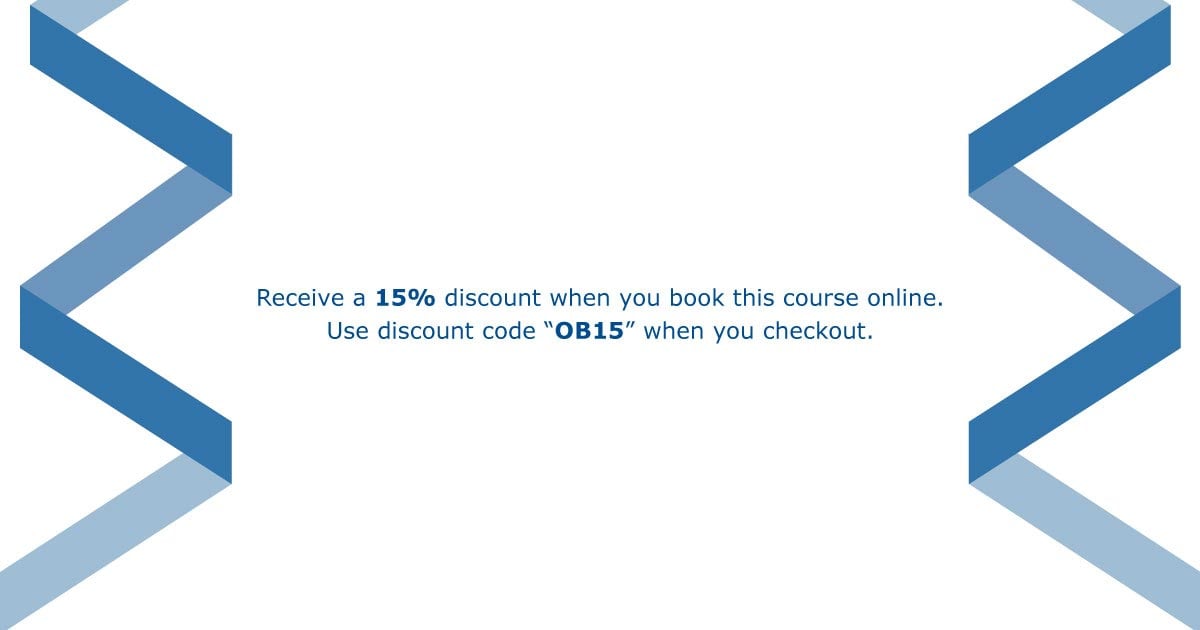Directors Development Programme Accelerator
The Directors Development Programme Accelerator (DDP) has been designed alongside experts in industry and academia. The programme is designed to support and provide leaders with the knowledge and skills to be a high performing Director, preparing them for the demands and challenges that they face every-day. Additionally, the programme gives learners the opportunity to take their studies to the next level by offering an associated qualification - the Postgraduate Certificate in Strategic Leadership for Directors, which is validated by the University of Chester.
This structured, insightful and intensive programme provides an outstanding personal development opportunity. It will give participants a detailed understanding and up to date knowledge of the role of the Director and the Board, leadership, corporate strategy, finance and, crucially, organisational governance. Through the knowledge and experience of the course leader and peers, delegates will be encouraged to consider their own role alongside the Board, discussing relevant issues, challenges and solutions.
Through subject specialists, cutting edge research, case studies and models, participants will be proficiently equipped to improve Board effectiveness and increase their own contribution at Board level.
*Limited discounted places available for public and third sector organisations. Please enquire for more information.*
Course Summary
Postgraduate Certificate in Strategic Leadership for Directors - Optional
Duration:
5 Day
Location:
Virtual Central London Central Manchester
Delivery Method and Price:
Virtual Classroom:
£3,250
Face to Face Classroom:
£4,250
About Us
About the Programme
This programme has been designed for managers, directors and senior stakeholders with a minimum of three years’ senior management experience.
*Please note that some of the materials and objectives may be subject to change depending on discussions, activities and needs of the cohort upon reflection of delegate responses to the pre-programme questionnaires.*
On completion of this programme, participants will:
- Hold a detailed knowledge and an in-depth understanding of the role and responsibilities of a director including legal obligations, personal liabilities and expected duties and how these relate to your role in your business
- Build crucial commercial, operational and leadership skills and knowledge
- Have improved confidence to effectively operate at board, C, D or executive-level management
- Possess knowledge of the latest boardroom best practice and principles
- Have developed the personal key skills to better influence the board and deliver more effective outcomes
- Be able to make improved and more informed decisions, viewing challenges more objectively and delivering better results.
Session 1
The Role of the Company Director and the Board
Key themes include:
- Director duties as defined in the Companies Act 2006
- Corporate and ethical governance
- Risk management in the current climate
- Offering both challenge and support in the boardroom and managing stakeholders
- Considering on-going legislative changes
Session 2
Finance for Non-Finance Directors
Key themes include:
- The key financial reports and metrics of a business, including cashflow, balance sheet, and profit & loss/income statements
- How to interpret the financial information from a non-financial perspective
- Understanding accounting principles and standards
- Methods that can be used by finance directors to create financial information that is non-financial friendly, including financial ratios
- Understanding the relationships between a company’s financial stakeholders and its directors/business owners
- Recognising the signs of a failing company
- How to rely on and gain the most from the finance function
Session 3
Advanced Leadership for Directors
Key themes include:
- Self-awareness in leadership and 21st Century leadership practice
- Developing an inquisitive mind-set and leading organisational change and knowledge
- Managing performance and measuring progress
- Influencing a positive culture in the workplace through effective, responsible, and sustainable leadership
- Managing diverse inter-dependent teams
- Developing soft skills for performance (coaching and mentoring) and developing effective teams and resilience in the workforce
Session 4
Advanced Strategic Planning for Directors
Key themes include:
- Understanding differences between strategic and operational thinking
- Strategic business planning concepts
- Designing and managing a process for successful organisational change
- Defining the business environment and influential factors
- Reviewing a range of strategic leadership and management theories to inform best practice
Session 5
Strategic Marketing and Communications for Leaders
- Deriving value and market share from research and insights
- Developing a brand and ‘the universal truth’
- The purchasing decision making process
- Public affairs and stakeholder communications
- Digital and social marketing
The Postgraduate Certificate in Strategic Leadership for Directors
Following completion of the Directors Development Programme, learners can opt to continue their studies with a Postgraduate Certificate in Strategic Leadership for Directors, validated by the University of Chester. This is a level 7 postgraduate qualification which sits between an undergraduate degree and a masters.
- Highly flexible programme to work around individuals, with rolling entry points throughout the year.
- Qualification can be achieved within 7 months of starting the PG Cert journey.
- Modules include: Governance and Finance, Leading and Managing an Organisation and Strategic Leadership and Marketing.
- Dedicated one-to-one support from our team of highly experienced academic supervisors, plus additional support from the Quality Assurance Team here at In Professional Development.
- Focus on work-based learning. Assessments can all be applied to the business situation/workplace, giving both the student and the wider organisation a chance to learn and adapt business practice.
- Achieving a PG Cert allows individuals to list the qualification as part of their credentials.
- This is also an excellent route into studying a full masters with the University of Chester. The Postgraduate Certificate in Strategic Leadership for Directors is mapped directly onto the full MBA (WBIS) that is offered by the university. Students opting to pursue the masters programme can offset their 60 PG Cert credits against the 180 credits necessary for a masters, thereby only needing to complete the remaining 120 credits.
Click here to find out more about the PG Cert in Strategic Leadership for Directors
Leadership Tutors
Finance Tutors
Marketing Tutors

Mel Ross
Tutor
Mel is passionate about helping private, public and third sector organisations humanise transformation. Humanising transformation leads to accelerated success and a safer, happier, and evolving human systems and earth. Pioneering the concept of Humanising Transformation as a standard within all change and transformation
Mel believes that leaders hold to human centred transformation in the first instance and the mindset, behaviours and competencies required to humanise transformation are specific. This is where the centre of Mel's work and mission focus – on supporting leaders, practitioners at the centre of change and organisational systems adopt the mindset that supports humanity centred practices to foster healthy evolving systems.
The journey to this professional mission has been supported through Mel's own practice in the world of change and transformation, and Mel's role as an entrepreneur, executive leader, and mentor-coach. The theme running through Mel's experience of success is how people focus and prioritise our personal and professional development to better support others.
-min.jpg)
Jeremy Earnshaw
Tutor
Jeremy Earnshaw is a current portfolio Chief Financial Officer and a Fellow of the Institute of Chartered Accountants in England & Wales. Jeremy has been operating at main board C-Suite Chief Financial Officer level for over 25 years to date, having been one of the youngest PLC CFO’s at age 29, leading a full IPO listing on the London Stock Exchange.
Working across multiple sectors including housing, healthcare, pharmaceuticals, printing, retail marketing, and online E-commerce, Jeremy is highly experienced on all main board and CFO matters, with specialisms in funding, M & A, stakeholder communication and value creation. With international experience in Europe, North America and Asia, Jeremy’s roles have always encompassed a wide range of responsibilities, including legal, governance, risk, financial PR and procurement.
Using the vast experience gained in both growth markets and challenging downturns, Jeremy is also now an Institute of Leadership & Management-qualified and trained Executive Coach & Mentor with his own practice, and currently undertaking a part-time Postgraduate Masters Degree in Coaching & Mentoring at Newcastle University.
Jeremy is also helping other companies with his experience by adding NED roles to his portfolio. He currently serves as Chair of Audit & Risk on the Boards of Optoma, a €245m Revenue global leader in the production and distribution of Visual Display Products & Solutions, and One Heritage Group PLC, a fully-listed Property Development business. Additionally, he is a NED at Leeds & Yorkshire Housing Association, plus an early-stage technology-led business.

Stewart McCombe
Tutor
Stewart has a career background in corporate banking, and is a highly experienced commercial individual, who commenced a transition into the not for profit sector at the end of 2009. He now has a portfolio of Chair, Board and consultancy roles across not for profits and SMEs.
Throughout his career, Stewart has developed a proven track record in the North West corporate market. In roles covering both relationship management and business development, his key skills of brokering and relationship building ensured the management of multiple stakeholders, at all times undertaken with outstanding levels of integrity. Core to his roles at Bank of Scotland were the management of key entrepreneur relationships for the bank.
In recent years, he has rapidly developed a profile in the not for profit sector, maintaining key board roles across a range of areas, including leisure and social care
Stewart has a range of financial, operational and strategic experience in the private, public and not for profit sectors, including charities, local authorities, banking and venture capital. This has captured a range of areas, including direct roles in leisure, adult care, the arts, environment and recruitment, coupled with a wide range of sectors including manufacturing, service, retail, building products and housebuilding during his corporate banking career. Stewart is at ease in any environment, from start-up to PLC boardroom.

Andy Bate
Tutor
Andy is a qualified chartered accountant with in excess of 15 years’ experience working in corporate finance and private equity organisations, where he did multiple Merger and Acquisitions and fund raising transactions and has sat on 15+ Boards.
He made the cross-over in wanting to build his own businesses and in the last 10 years, is a founding partner of a fast-growing and successful e-commerce company, and in 2019, co-founded and launched an education software business around capturing and evidencing health and wellbeing in children. Andy is also a founding partner of the consultancy/operating partners arm of Gunner Cooke Operating Partners.
The vast amount of businesses Andy has appraised and worked with in his corporate finance and private equity career, coupled with his own “at the coalface” learning experiences of starting, building and developing his own businesses, gives an invaluable insight into how businesses and Boards should function.
Andy is incredibly energetic, hungry, and has a strong desire to succeed in any business he supports.

Hannah March
Tutor
Hannah is an experienced Marketing Strategist, specialising in helping business leaders boost company performance by identifying what customers want and care about, aligning products and services to deliver that value and then positioning the value propositions so that customers are drawn in.
Hannah has experience across the board working in both products and services, client and agency side and for multinational corporations and SMEs. She has held roles in London and Sydney and worked with many multidisciplinary and geographically dispersed teams.
Hannah has worked for the world’s largest exhibition company, with leading luxury brands, for a prestigious design agency, and within the manufacturing field.

Matt Eld
Tutor
Matt is an expert in marketing strategy and business transformation. He is a senior leader with over 25 years’ experience of improving and growing businesses, gained from a variety of senior management roles. Matt has held MD and Director posts in a FTSE 250 organisation, Marketing and Communications agency and as a business owner. A CIM Marketer by background, Matt has amassed a wealth of commercial transformation and marketing communications experience. He is an accomplished communicator and is skilled at operating at all levels of the organisation, analyzing and quickly establishing business challenges and developing sustainable solutions. He has strong influencing and negotiation skills and can drive transformation change to success with authority and a clear vision. His broad range of experience covers multiple disciplines including marketing, communications and crisis management, commercial development, change management, organisational development, IT & technology deployment, project management and business improvement.
Matt is a director level project and transformation professional with demonstrated ability to create and translate strategy into measured operational performance improvement. He has extensive experience in marketing, customer acquisition, project management, organisational redesign and commercialization, which he has gained across direct and agency environments in Higher and Further Education, Media & Publishing and Local Government sectors. He is an accomplished leader and influencer from the boardroom to front line teams across multiple location.

David Abbott
Tutor
David is an award winning international marketing speaker and author. He read Engineering Science and Economics at University College, Oxford University and then went on to complete the Chartered Institute of Marketing’s Diploma at Manchester Business School. He is a Chartered Marketer.
David has held a number of senior marketing and MD roles in a wide variety and sizes of businesses. His background covers multiple industries, includes public sector and private sector, and both B2B and B2C. David works as an interim marketing director for a number of businesses, helping them to develop and execute a marketing strategy to help them achieve their goals, and helping them to develop their marketing skills, processes and teams.
Our dedicated In-House Training team can work with you to create a tailored training course that creates an optimal learning experience. Our bespoke built training programmes are designed around your needs and allow you to meet the specific requirements of your business.
Click here to view our In-House Training services.
Is this course right for you?
- Build your understanding of the role and responsibilities of a Director
- Build crucial commercial, operations and leadership skills
- Improve your confidence and effectiveness operating at board level
- Make more informed decisions
- Lead and plan more strategically
Testimonials
Caroline Hawkesley
Progeny, COO
DDP
Warren James Lewis
Datrys, Director & Chartered Structural Engineer
DDP
Rob Charnock
ResX, Director of Business Development
DDP
Rob Howard
Medway Community Healthcare CIC, Associate Director Business Intelligence
DDP
Melanie Mead
Q1Care Ltd, MD
DDP

Accommodation Made Easy
On confirmation of your course booking, you'll have the option to book accommodation from the world renowned and trusted Booking.com. Book your course, book your accommodation, expand your skills. Easy as 1 2 3.
Upcoming Courses
No courses to show.
{{ event.title }} ({{ (new Date(parseInt(event.start_date))).toLocaleDateString("en-GB") }} - {{event.location_name}} {{event.learning_mode}}).
In Association With:
{{ (new Date(parseInt(event.start_date))).toLocaleDateString("en-GB") }} - {{ (new Date(parseInt(event.end_date))).toLocaleDateString("en-GB") }}
Location:
{{ event.location_name}}
Price:
£{{ event.price }} + VAT
Featured Courses
Frequently Asked Questions
There are no prerequisites for any of our courses, however, we do recommend a minimum of three years’ experience in a senior management position for our leadership and management courses, such as the Directors Development Programme, Senior Leadership Programme, and Mini MBA
If you take our Directors Development Programme on an accredited basis, you will receive a PGCert, which contributes 60 points towards a Masters, and there are 180 points required for a full Masters.
You can find out more about our accreditations on our Qualifications page.
If we have the availability on our course, you can book as many places as you need for your organisation.
However, if you have a group of seven people or more, you may find it more cost effective to book an in-house training course.
The benefits of in-house delivery go beyond cost savings; the course is tailored to your business and industry sector, making the content highly relevant, plus we’ll deliver the training at a time and date to best suit you.
Virtual Classroom
Our online training courses are designed to create the optimum learning experience for the virtual environment. Our training is highly interactive; our tutors make regular use of whiteboard, annotate, polls and other types of interactive software to enhance the learning experience.
We use Zoom for our open courses, and we recommend that our delegates download the application before attending one of our courses.
Face to face
Face to face learning is just one of the two delivery methods available for your learning, but why choose the face to face delivery option? At In Professional Development, we ensure that your learning environment is one where you can get the most out of your study.
The benefits of learning in a face to face environment means you have the opportunity to connect with, problem-solve, and network with other delegates from a wide range of backgrounds.
In Professional Development deliver the most up to date and relevant solutions, to everyday real world problems for the working professionals.






